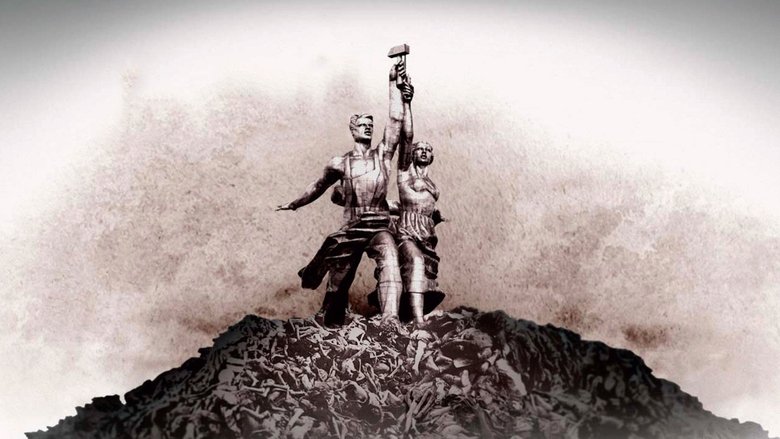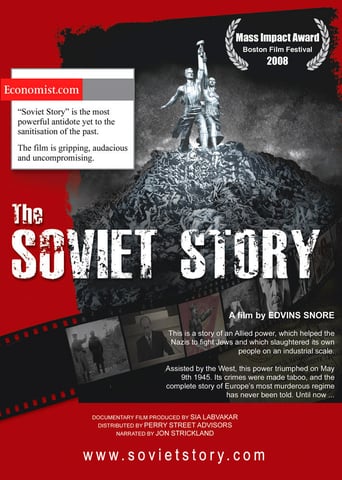
“The Soviet Story” is a story of an Allied power, which helped the Nazis to fight Jews and which slaughtered its own people on an industrial scale. Assisted by the West, this power triumphed on May 9th, 1945. Its crimes were made taboo, and the complete story of Europe’s most murderous regime has never been told. Until now...
Similar titles
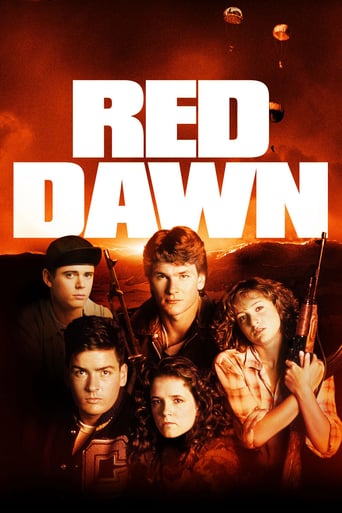
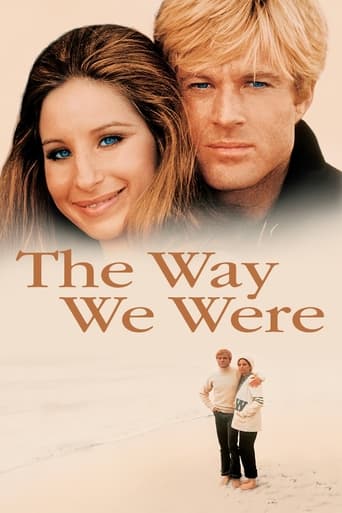
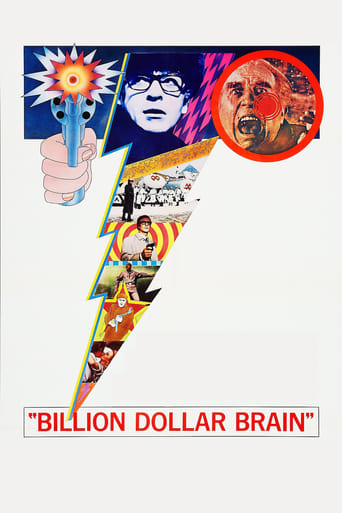
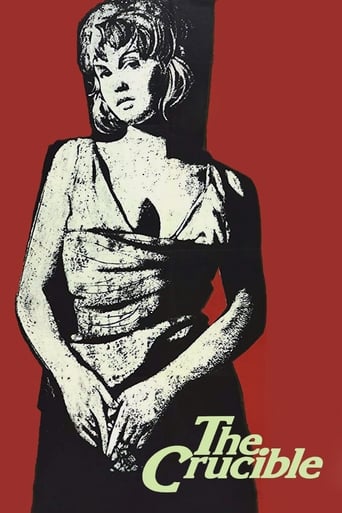
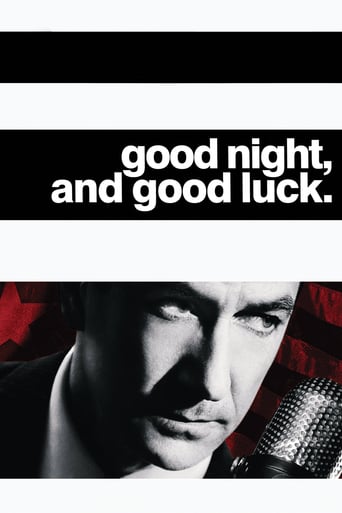
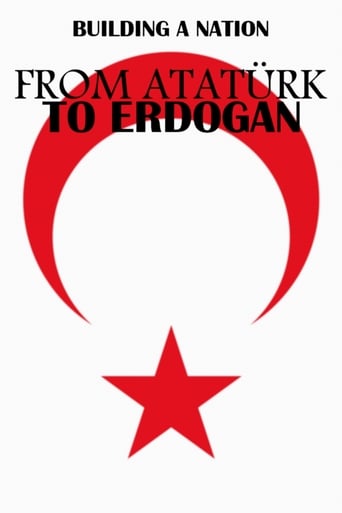
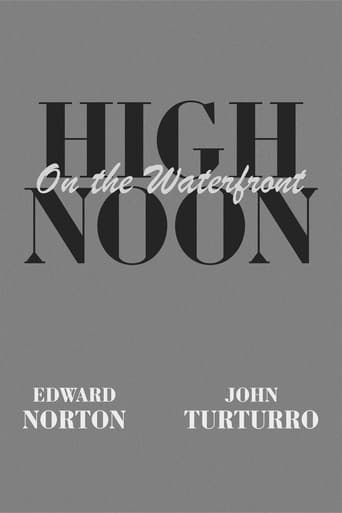
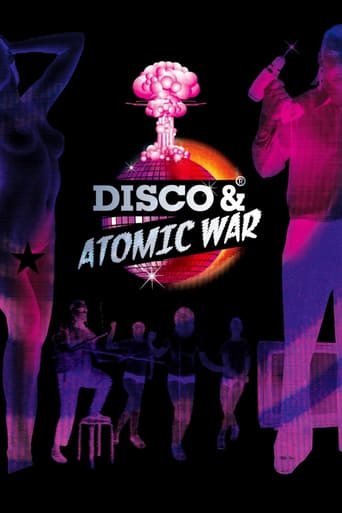
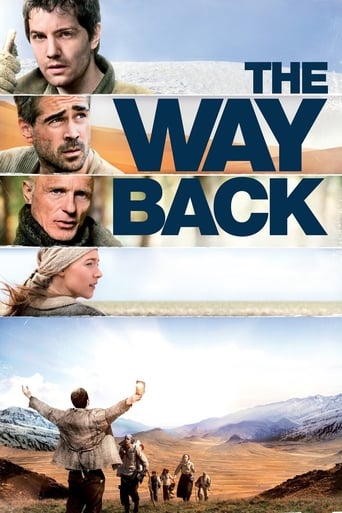
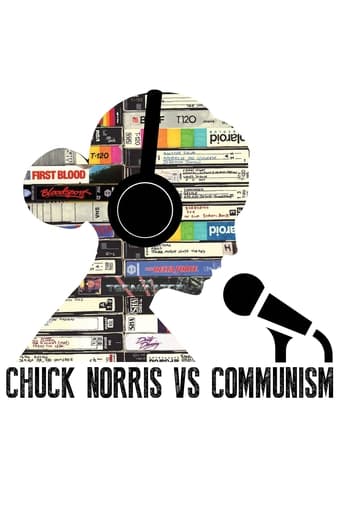
Reviews
In truth, there is barely enough story here to make a film.
A movie that not only functions as a solid scarefest but a razor-sharp satire.
The film never slows down or bores, plunging from one harrowing sequence to the next.
I didn’t really have many expectations going into the movie (good or bad), but I actually really enjoyed it. I really liked the characters and the banter between them.
The movie is excellent. It is well known that winners are writing the history- so the truth of soviet mass murders and genocide is still not truly known for the world. The movie is well-structured and compares two parallel regimes, so opposite but at the same time so similar. People from the countries that were occupied by red plague, know these stories from they parents and grandparents. it is rough to realize for a western world- but the soviet Russia was in no case better than Nazi Germany. For Baltic States people for example, actually it was in number of times worse, the real "holocaust" was created by red army. I have spoken with a lot of people who were in WW2 (for example my grandpa and grandma and et.) and all of them are describing Germans as "at least culture nation" but red soldiers as "dirty brutal people with no honor and compassion". Number of killed persons was several times bigger by Stalin than by Hitler. So who was the worst dictator? That is the question that this movie adduces and it is good, there are so much to bring to daylight and rewrite the history.
The horror was inexcusable but there is no mention of our own benefit from this horror. All the World, or at least the elites controlling all nations, were opposing the Soviets. Thirteen nations invaded to help the White Russians put down the Communist revolt. From the beginning Stalin knew well that Germany wanted a resource rich empire and that the Colonial powers had always thwarted any effort to compete with them in Africa and Asia, so they needed to go east. Stalin also had the Japanese threatening on his eastern border where they had been fighting since the Battle of Tsushima. He was desperate to industrialize and build a modern army but the rest of the World wouldn't help a communist country and refused all trade. It was only through confiscating the grain for sale on the international market that he managed to buy enough modern tools to start industry. Thinking the Japanese the lesser threat he built much of that industry in the East. In May of 1939 he attacked the Japanese and defeated them in what was the largest tank battle up to that time. Having started from a feudal society this was an amazing accomplishment. Without this attack by Stalin, well ahead of war in Europe, the army would have won the argument in Japan and joined Germany and Italy in attacking Russia from all sides. Instead the Navy won the argument and the Japanese went south. In August he signed the pact with Germany stalling off their attack and pushing his western boundary west to the centre of Poland. He may also have sent some resources to Germany, as depicted, again to stave off the attack he clearly knew was inevitable. Once Germany attacked the Russians fought back as best they could. They were the proletariat with no hundred year old military colleges so their command and control was the worst possible against German officers with a hundred year tradition behind them. They built more tanks and more planes in every month of the war than did the Germans but the planes especially were no match for the Messhersmits. It was a victory if a Russian plane could kill one German tank before it was shot down. In the largest tank battle ever fought at Kursk 100,000 Germans were killed or wounded vs. 850,000 Russians. They fought poorly, but if they hadn't been tying up the bulk of the German army, Britain would certainly have fallen and the Third Reich would be with us still. I repeat we are the major beneficiaries of Stalin's stealing of the grain, the nerve to attack the Japanese and the resolve to sacrifice any number of his 'comrades' fighting the Germans.
OMG Soviets were meanies. Who knew? I thought they were all about puppies and sunshine. Pardon my stupidity. ****** end sarcasm *******If the filmmaker didn't talk down to his audience, there could be an informative documentary here. But every other word is 'NOBODY KNOWS THIS BUT...'. Know what? I knew most of this already. There's some interesting details but the general takeaway is already widely known.1. Nazis and Soviets were originally Allies. Other than stupid Middle America, who doesn't know this? They invaded a Whole Country together. At best they could say is 'It's not widely spoken of by the Russians today'. With former KGB Putin at the helm, that's a more interesting angle to take. But this film treats it's audience with such naivety. Oh the Russians won't admit to Soviet crimes. Like that's some sort of news? Guess what? Neither do the Japs. You're not breaking any ground.2. Desperately trying to link National Socialism and Communism and thereby tar all left leaning politics. At times, it felt like an academic dissertation. At other times, it felt like selective arguments. I just kept thinking of George Orwell. These are just the various justifications of the same thing. TOTALITARIANISM. The justifications is secondary to the wish for total power. They don't care about the niceties of theories. It's all about total power. Like all powerplay, allies are just enemies in waiting. This doc completely ignores that Fascists and Commies fought in Spain and in Germany. Stalin can drop his idealism for those people because its the power that's more important.3. Doc tells us there was something called Gu -lag. Whatever! It's in everyday English language, but the documentary is treating it like discovering the Fountain of Youth. Just relax. There's a little bit good info here. Again you're not breaking any ground.4. Most naive of all. The Russian aren't being put to the fire over their Soviet past. Here's the most important History lesson of all. The winners always write the history.Overall it's taking on a good subject but doing it very poorly by treating its audience as idiots.
Supported by a fringe, neo-fascist faction of the European Parliament, which includes pro-Nazi glorifiers, xenophobes, and anti-Semites of the Fatherland and Freedom (Latvia), Lega Nord (Italy), and the Law and Justice Party (Poland), this propaganda piece with lies and innuendo seeks to generate hatred towards Russia and blacken the image of progressive forces throughout the world.There is nothing new with the approach of this film. Desperate attempts to blacken the Russian Government and equate it to Nazi Germany is part of the old Cold War propaganda struggle waged by the United States Government and neo-fascist organizations like the John Birch Society. This is ironic given the fact that this film has received the enthusiastic support of the crypto-Nazis of Latvia's For Fatherland and Freedom party. Especially disturbing about the revisionism of this film is the denial of the Holocaust by seeking to shift blame from the actual criminals to Russia.To start, this piece of pseudo-history does not include contributions from any respected, qualified scholars specializing in Russian history or political science from institutions of higher education. One contributor to the film, George Watson, fabricates and misinterprets quotations from Marx and Engels. Watson, it should be noted, is not a professor of history, political science, or any field relating to the film's subject. And while this film presents itself to be some kind of groundbreaking investigation of Russian history, it is curious how not a professor of history from Russia is found in this film. Rather, the documentary features a freak show composed of degenerates from radical right-wing parties, such as Kristovskis of the the aforementioned For Fatherland and Freedom party of Lavia.Concerning the invented quotations of Marx and Engels, it is claimed in this film that Engels called Slavs "dirty" and opposed the existence of Poland. But this is a a falsification of history because Marx and Engels had long been some of the most passionate supporters of Polish independence, particularly the 1863 uprising. The film makes the outrageous claim that Marx and Engels called for a "revolutionary holocaust" against specific peoples. But Engels did not call for the destruction of what he called counter-revolutionary nations, but only predicted that such people would experience setbacks as they struggled with the progressive nations. In 1890, Engels would write positively on these backwards nations, believing in their right to self-determination: "Magyars, Romanians, Serbs, Bulgars, Albanians, Greeks, and Turks will then finally be in a position to...manage their own internal affairs according to their own judgment." It should be noted, however, that Marxism is not some kind of immutable dogma; Marx and Engels regularly revised their work and acknowledged their errors and mistakes that they previously made.The film makes the spurious claim that a famine throughout Russia and elsewhere in the Soviet Union constituted a genocide against Ukraine that killed 7 million. But as scholars have noted, the famine was in no way limited to the Ukraine, but affected much of the country. To talk about a "Ukrainian Golodomor" is a misrepresentation of history. Contrary to what the film and its sources claim, the death toll was nowhere near 7 million. Professor Wheatcroft, for example, estimated that the death toll amounted to an estimated 4 to 5 million throughout the USSR, including 1.5 million in Ukraine. And as Tauger proves in his research, the famine to a large extent resulted from natural disasters. In particular, Extremely dry weather had the effect of reducing crops while extremely wet and humid weather later on led to infestations. And rather than desiring the famine, the Soviet Government took measures to provide relief to those areas affected by the famine.Other monstrously false claims made in this film include the lies that Russia refused to enter into an anti-fascist alliance with the Western Powers, Gestapo staff trained the NKVD, Russia's extradition of Jews to the Gestapo, and Russia's involvement in the extermination of Jews, which I do not have the space to go into detail about.Rather than wasting your time with this pathetic excuse for a propaganda film, a better choice would be to go to college and study the work of respected scholars to learn the truth.
Top Streaming Movies











